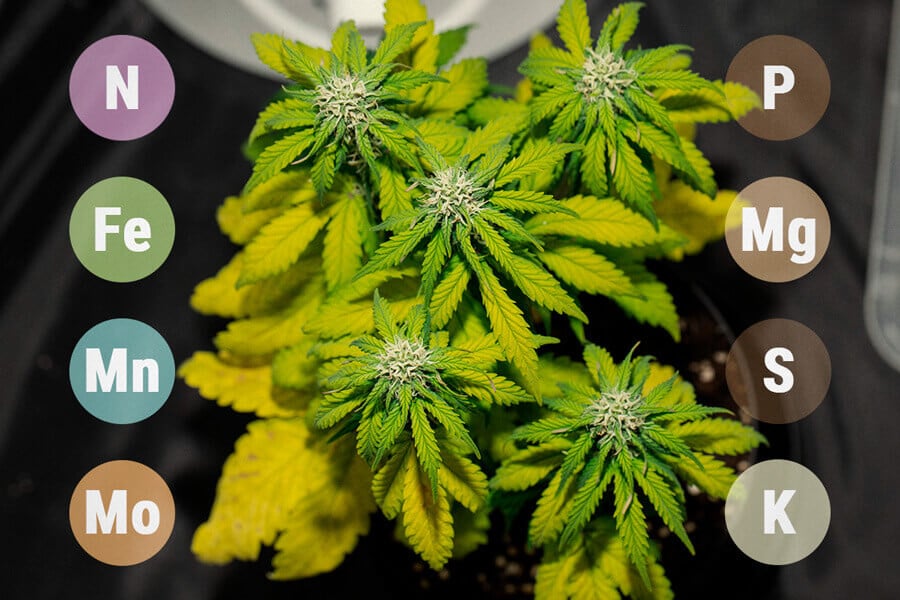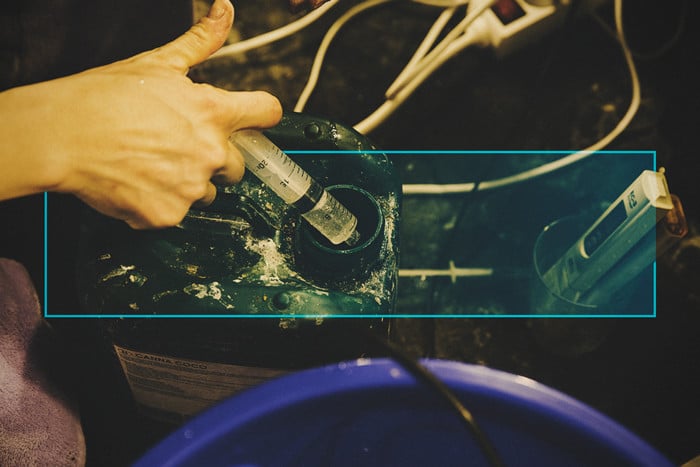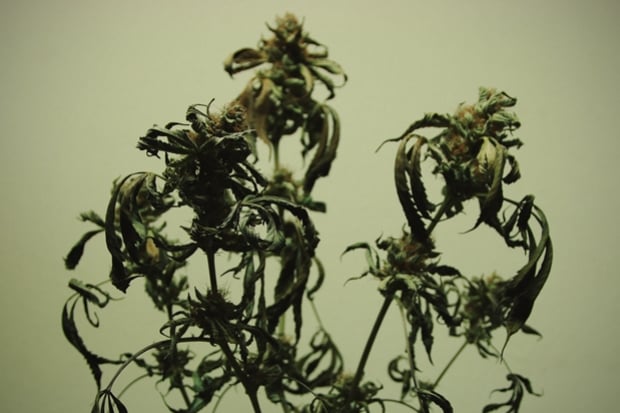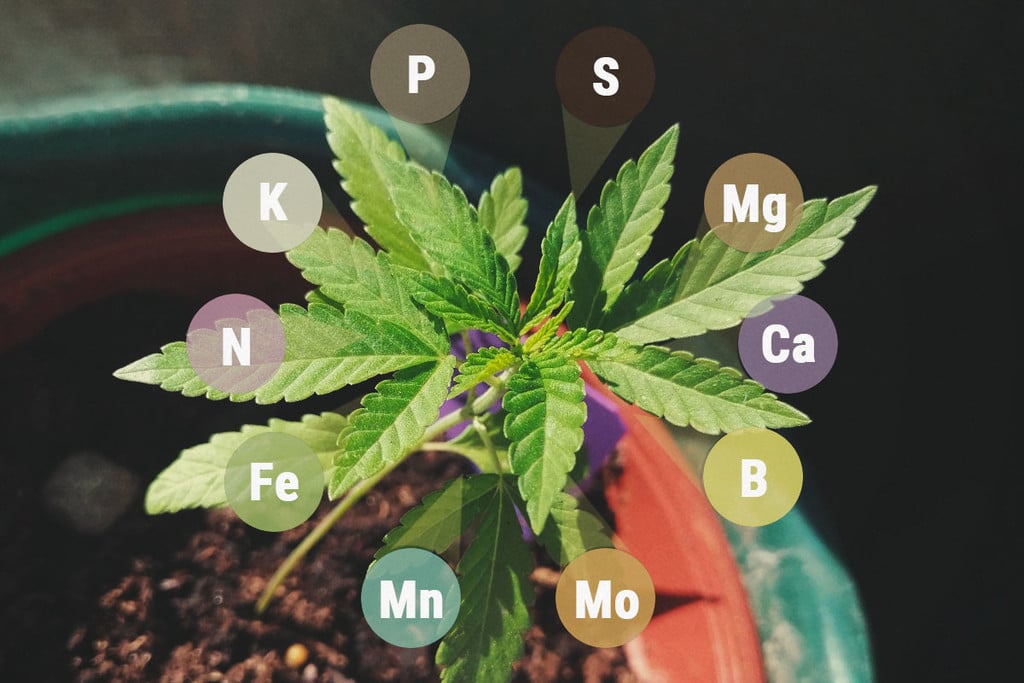 Cannabis Grow Guide by Royal Queen Seeds
Cannabis Grow Guide by Royal Queen Seeds
- Growing cannabis step by step
- Cannabis growing basics
- Choosing your seeds
- How to germinate seeds
- The cannabis vegetative stage
- The cannabis flowering stage
- Harvesting cannabis
- Trimming, drying, and curing
- Choosing pots and soil
-
Growing indoors
- A Complete Overview Of Growing Cannabis Indoors
- Cannabis Cultivation Tips: How To Set Up Indoor Grow Lights
- How Many Cannabis Plants Can You Grow Per Square Metre?
- Indoor Cannabis Growing: Relative Humidity and Temperatures
- Hydroponics Cannabis Growing Guide (with diagrams)
- Cannabis Micro Growing: Growing Great Weed in Tiny Spaces
- Growing outdoors
- How to grow autoflowering cannabis
- Cannabis nutrients and pH
- Cannabis troubleshooting: Nutrients
-
Cannabis troubleshooting: Growing
- Cannabis Seed Germination — Troubleshooting Guide
- How to Deal With Pythium (Root Rot) in Cannabis Plants
- Slow Cannabis Plant Growth And What You Can Do About It
- How to Deal With Leggy Cannabis Seedlings
- Watering Your Cannabis: How to Fix Overwatering and Underwatering
- Understanding Male, Female, And Hermaphrodite Cannabis
- Identifying and Treating Common Cannabis Ailments
- How To Revive a Sick Cannabis Plant
- How to Avoid Mouldy Weed During Drying and Curing
- How to Prevent and Treat Dry and Crispy Cannabis Leaves
- What Cannabis Leaves Can Tell You
- Causes and Solutions for Yellow Cannabis Leaves
-
Cannabis Strains Grow Report
- HulkBerry Automatic Grow Report
- Blue Cheese Auto Grow Report
- Purple Punch Automatic Strain Grow Report
- Triple G Automatic Grow Report
- Do-Si-Dos Automatic Grow Report
- Green Gelato Automatic Grow Report
- Haze Berry Automatic Grow Report
- Purple Queen Automatic Grow Report
- Cookies Gelato Automatic Grow Report
- Sherbet Queen Automatic Grow Report
- Sweet Skunk Automatic Grow Report
- Medusa F1 Grow Report
- Cannabis plant training
-
Weed growing tips
- The Cannabis Plant Anatomy
- How to preserve seeds
- How Much Sunlight Do Outdoor Cannabis Plants Need To Grow?
- How to Control and Prevent Stretching in Cannabis Plants
- My Cannabis Plants Are Growing Too Tall: What Should I Do?
- Should You Worry About Purple Or Red Cannabis Stems?
- What To Do When Your Indoor Cannabis Won’t Flower
- How To Protect Your Cannabis Plants From Heat Stress
- How To Tell If Your Female Cannabis Plant Has Been Pollinated
- Growing Medical Marijuana
- Bud Washing: How to Clean Your Weed
- Understanding Cannabis Yield per Plant
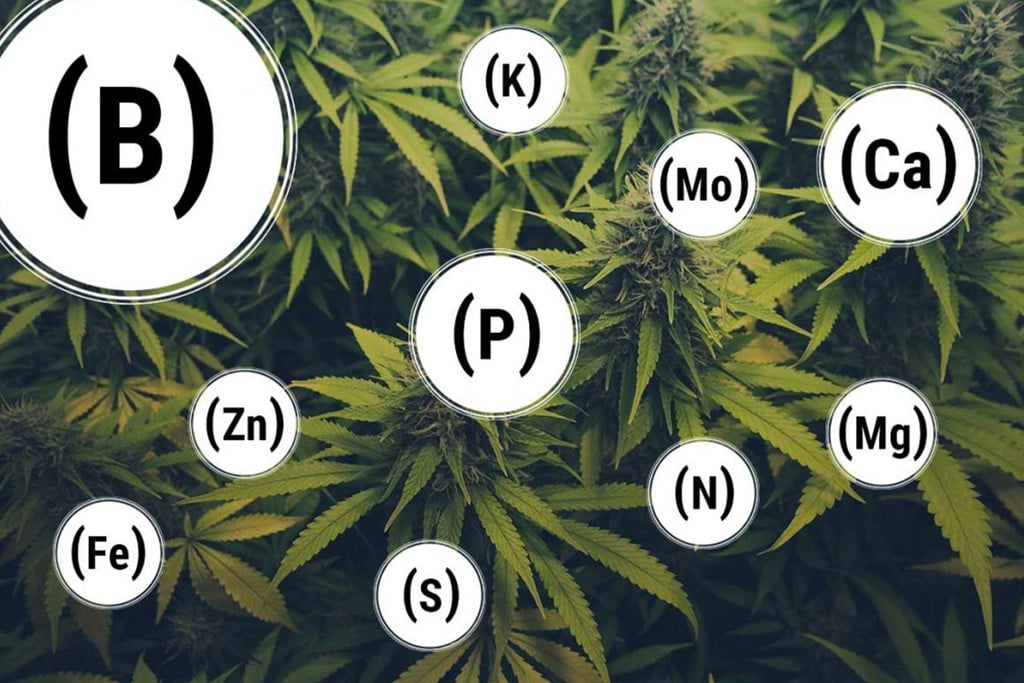
How To Prevent And Fix Every Cannabis Nutrient Deficiency
Nutrient deficiencies: How to prevent and fix them.
Contents:
Just like us, cannabis plants require a varied and healthy diet to survive and thrive. They need the right amount of nutrients to fulfil important physiological functions, and if they lack just one piece of the puzzle, growth will slow down and yields may be affected.
Luckily, the cannabis plant does a pretty good job of communicating what it needs. If nutrient deficiency strikes, it often sends out a signal—wilting, discolouration, curled leaves—to inform the cultivator of what it requires.
Before we dive into how to prevent and fix each nutrient deficiency, they are a few important things you should know.
MACRO VS MICRONUTRIENTS
Macronutrients are minerals that cannabis plants require in large amounts. These include nitrogen, phosphorus, and potassium. Just like fats, carbs, and protein form the cornerstone of the human diet, cannabis needs these important minerals in large quantities to carry out key processes.
Micronutrients are minerals and elements required in much smaller amounts. However, they are just as vital to plant health. These include iron, zinc, sulphur, boron, and others. Think of them like minerals and vitamins in the human diet. We don’t need much of them, but without them, it wouldn’t take long to autumn ill.
MOBILE VS IMMOBILE NUTRIENTS
Learning the difference between mobile and immobile nutrients can help growers diagnose deficiencies more accurately.
Mobile nutrients are minerals that can be shuttled throughout the plant to areas that need them the most. For example, phosphorus stored in older fan leaves can be directed towards newer growth if a deficiency occurs. Therefore, deficiency of a mobile nutrient will first become noticeable in older growth.
Immobile nutrients remain locked in place and plants cannot redistribute them. For example, if a zinc deficiency takes hold, the signs will first show in the newer growth as the plant can’t relocate its mineral stash.
| MOBILE VS IMMOBILE NUTRIENTS | |||||
|---|---|---|---|---|---|
| ELEMENTS (Symbols) | MOBILITY IN PLANT | NUTRIENT DEFICIENCY FOUND IN |
|||
| Nitrogen (N) |
Mobile | Old leaves | |||
| Phosphorous (P) |
Mobile | Old leaves | |||
| Potassium (K) |
Mobile | Old leaves | |||
| Calcium (Ca) |
Immobile | New leaves | |||
| Sulfur (S) |
Immobile | New leaves | |||
| Magnesium (Mg) |
Mobile | Old leaves | |||
| Iron (Fe) |
Immobile | New leaves | |||
| Manganese (Mn) |
Immobile | New leaves | |||
| Boron (B) |
Immobile | New leaves | |||
| Molybdenum (Mo) |
Immobile | New leaves | |||
| Zinc (Zn) |
Immobile | New leaves | |||
| MOBILE VS IMMOBILE NUTRIENTS | |||||
|---|---|---|---|---|---|
| ELEMENT (Symbol) | MOBILITY IN PLANT | NUTRIENT DEFICIENCY FOUND IN | |||
| Nitrogen (N) | Mobile | Old leaves | |||
| Phosphorous (P) | Mobile | Old leaves | |||
| Potassium (K) | Mobile | Old leaves | |||
| Calcium (Ca) | Immobile | New leaves | |||
| Sulfur (S) | Immobile | New leaves | |||
| Magnesium (Mg) | Mobile | Old leaves | |||
| Iron (Fe) | Immobile | New leaves | |||
| Manganese (Mn) | Immobile | New leaves | |||
| Boron (B) | Immobile | New leaves | |||
| Molybdenum (Mo) | Immobile | New leaves | |||
| Zinc (Zn) | Immobile | New leaves | |||
PH MATTERS
Your soil can hold all of the nutrients your plant needs, but it won’t be able to access them if the pH is off. Cannabis plants thrive in a soil pH of between 6.0–6.5. Any lower or higher and plant roots will struggle to absorb key nutrients—a phenomenon known as nutrient lockout. Routine flushes can prevent this from happening. Keep an eye on your values using a pH meter. You can also change the pH of your soil using these techniques.
GOING ORGANIC
Advances in soil science have shown that the rhizosphere (root zone) is beaming with life. Here, a complex network of microorganisms works synergistically with the root system. The soil needs an optimal balance of bacteria and fungi to break down organic matter and free up nutrients for plants to use.
Focusing on composting and building living soil provides long-term prevention of nutrient deficiencies and supports thriving biodiversity within the rhizosphere. Such beneficial life will help your yields soar.
However, growers can take more direct action in the short-term. Foliar spraying can be administered as a quick fix when plants are missing out on some nutrients. These feeds bypass the roots and are absorbed straight through the leaves.
HOW TO PREVENT AND SOLVE NUTRIENT DEFICIENCIES
Below is a list of key nutrient deficiencies that may arise, as well as how to prevent them and fix them if they strike.
Want to avoid nutrient problems? Download our guide to learn essential tips for cannabis care!
Free RQS
Grow Guide!

NITROGEN
A mobile macronutrient, nitrogen plays a major role in photosynthesis and the formation of vital plant proteins. Nitrogen deficiency can result in yellowing older leaves, older leaves dropping off, eventual discolouration of the entire plant, and reduced yields.
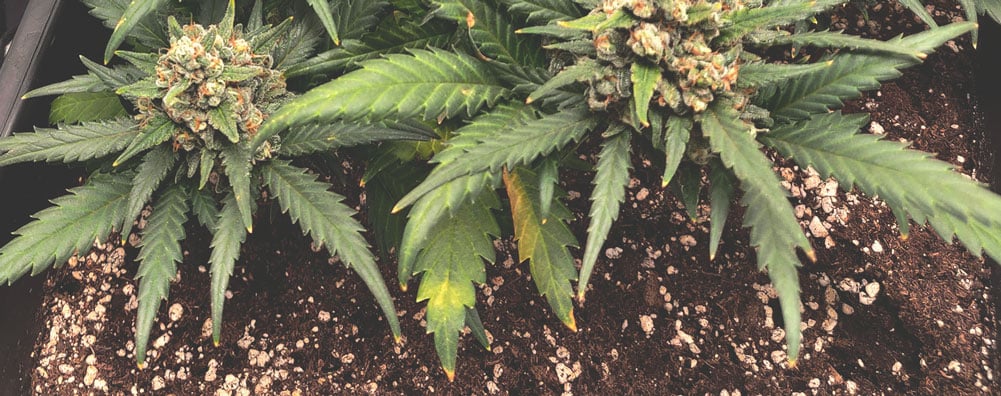
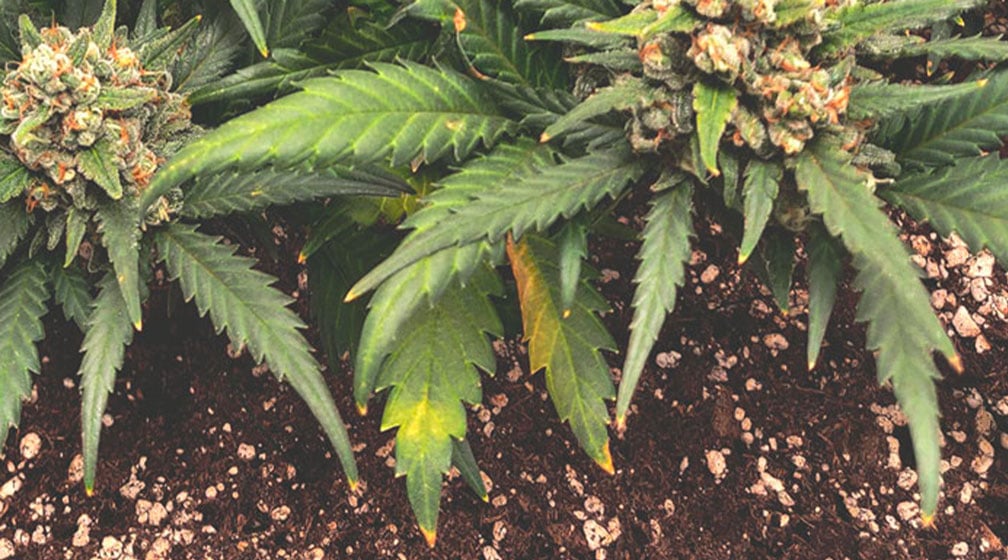
| How to prevent |
|
| How to fix |
|
| How to prevent |
|
| How to fix |
|
PHOSPHORUS
Phosphorus also acts as a macronutrient in the cannabis plant. Being a mobile nutrient, plants can direct the mineral to the areas that need it most. Phosphorus plays an essential role in photosynthesis and protein synthesis, and it's a crucial component of DNA. Phosphorus deficiency can manifest as red/purple stems, brown spots on leaves, and dry leaves.
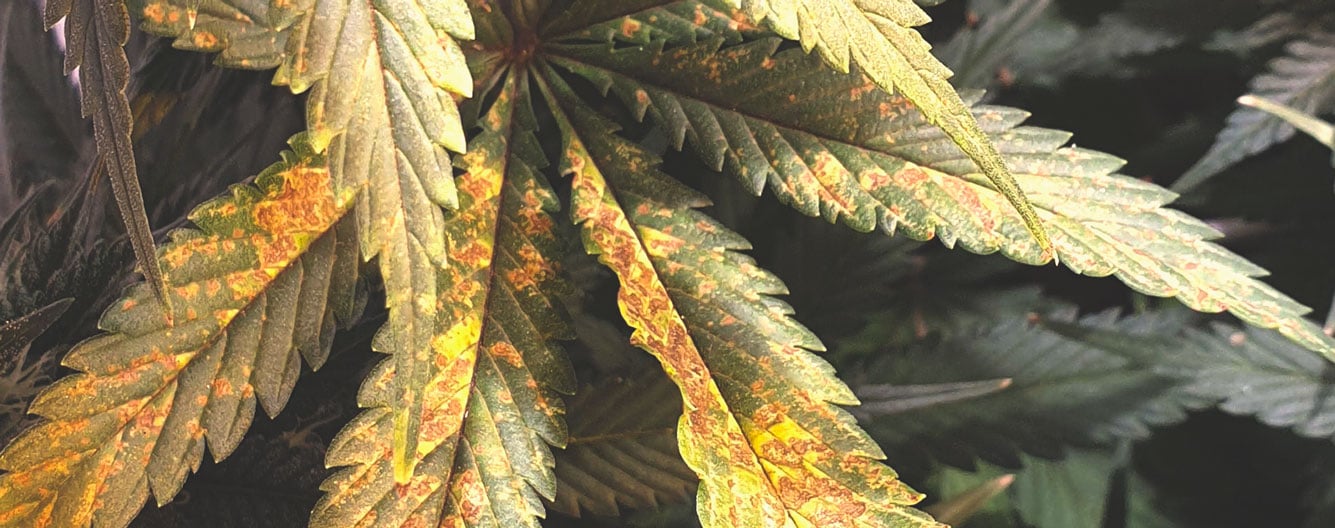
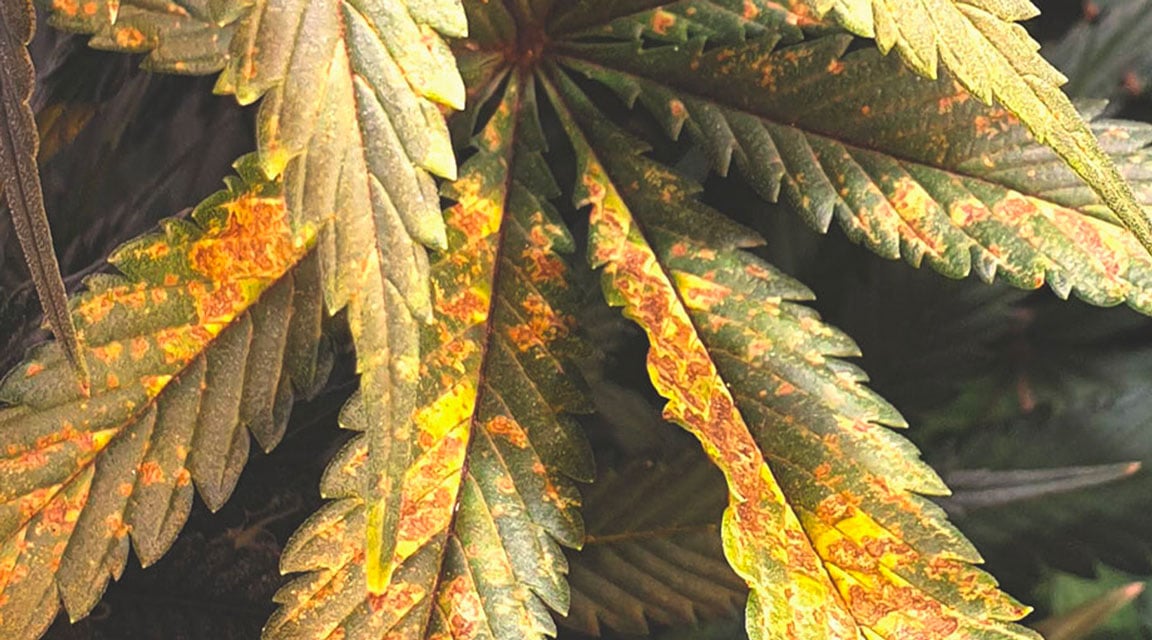
| How to prevent |
|
| How to fix |
|
| How to prevent |
|
| How to fix |
|
POTASSIUM
Potassium: the third and final macronutrient. It helps to regulate CO₂ uptake and plays a role in photosynthesis. The mobile nutrient also helps in the production of ATP (the cellular unit of energy). Potassium deficiency appears as brown and yellow leaf tips and edges, curled-up leaves, and stretching.
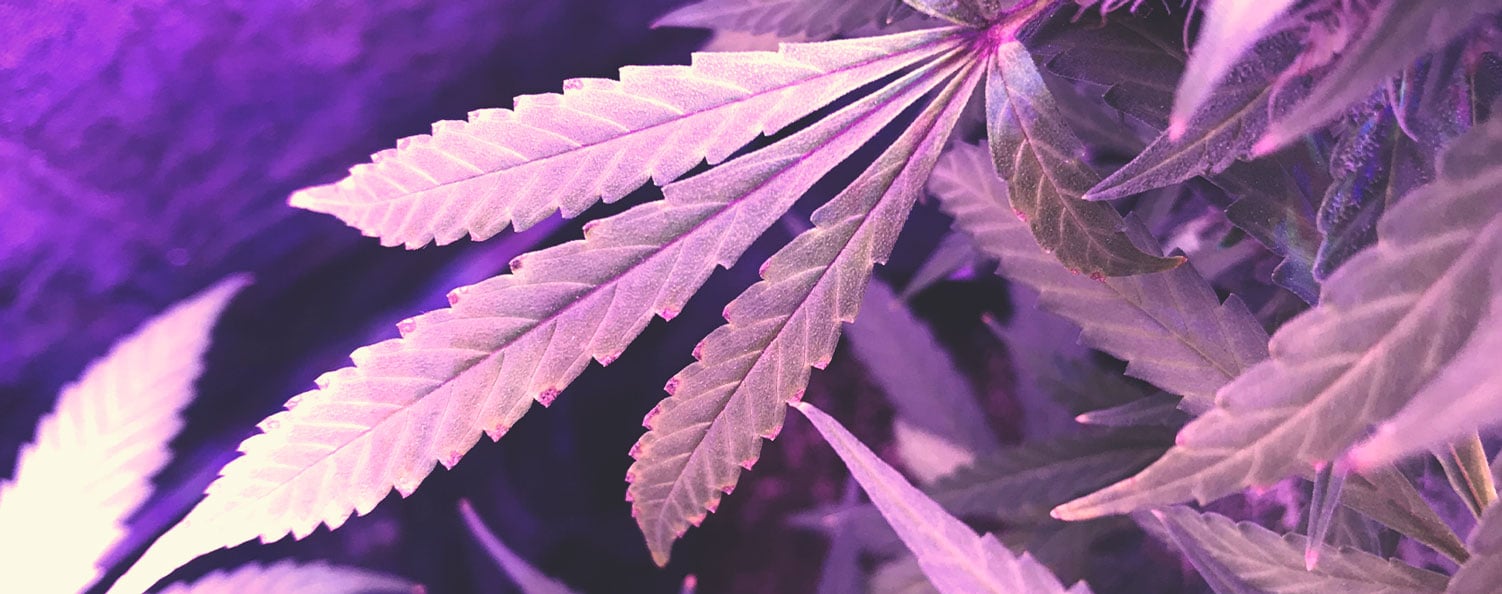

| How to prevent |
|
| How to fix |
|
| How to prevent |
|
| How to fix |
|
CALCIUM
Critical to plant health, this immobile micronutrient helps to hold plant cell walls together. Calcium deficiency can lead to new growth—root tips and young leaves—forming incorrectly and becoming warped.
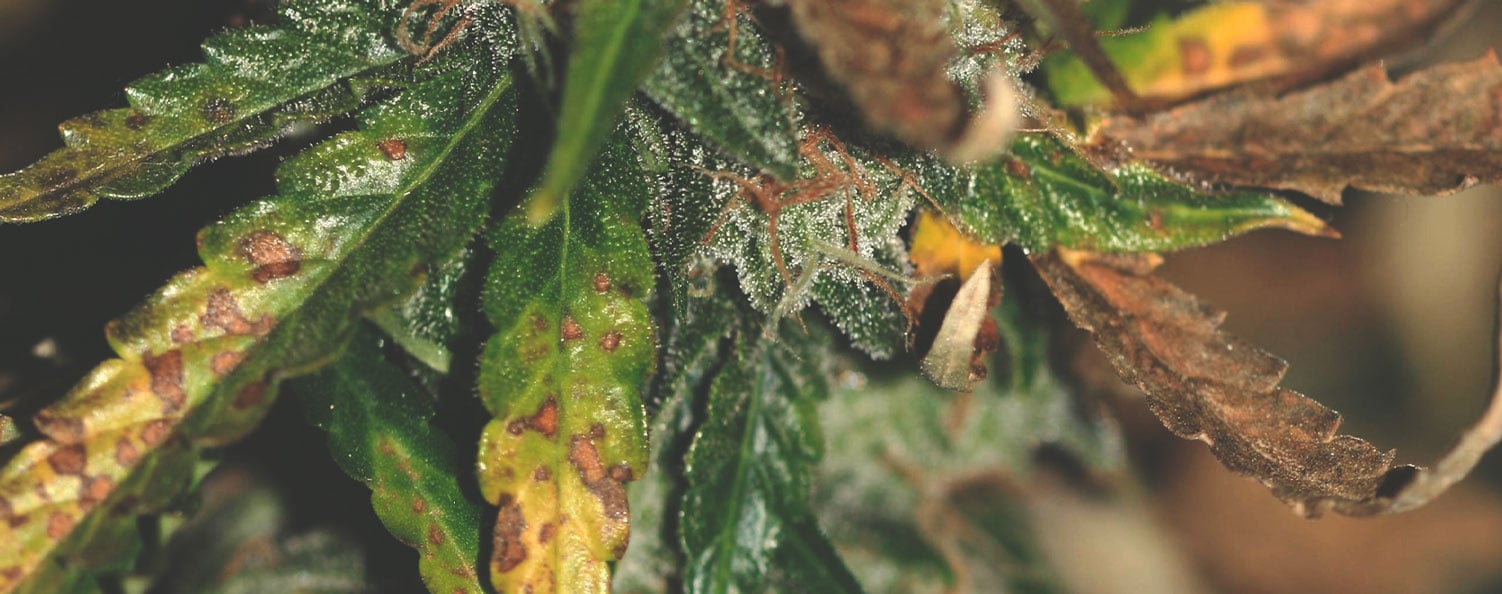
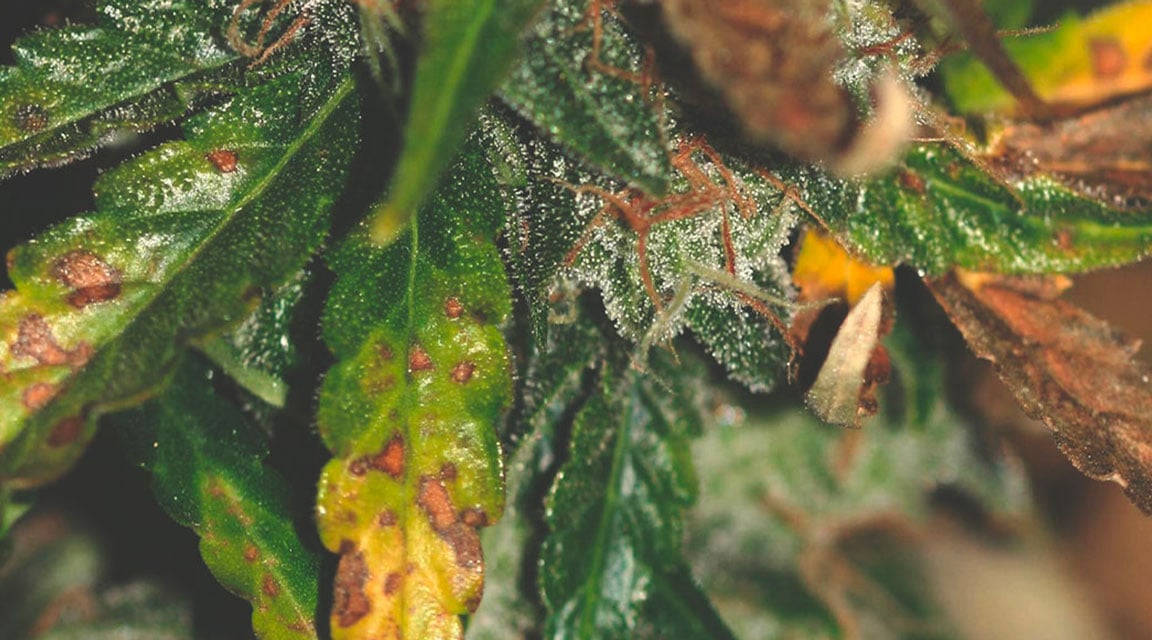
| How to prevent |
|
| How to fix |
|
| How to prevent |
|
| How to fix |
|
SULPHUR
Although required in very small amounts, this key immobile nutrient contributes to forming vital enzymes and proteins. A sulphur deficiency will lead to yellowing of new growth and discolouration on the undersides of leaves.
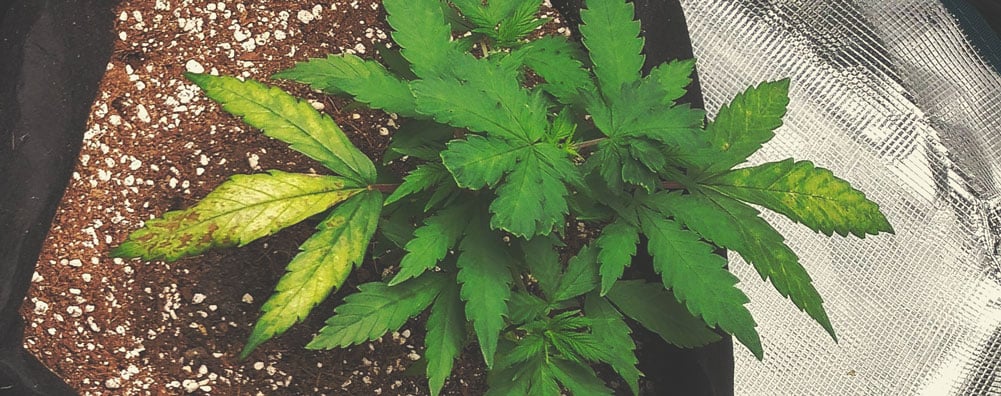
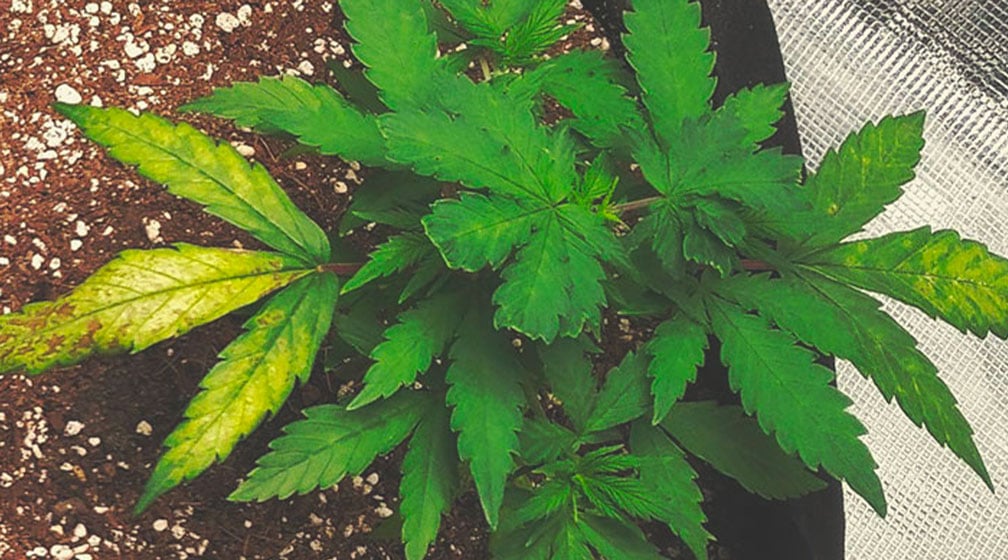
| How to prevent |
|
| How to fix |
|
| How to prevent |
|
| How to fix |
|
MAGNESIUM
Without this mobile micronutrient, photosynthesis would not be possible. The mineral sits at the heart of the chlorophyll molecule and enables it to absorb light. Magnesium deficiency will result in lower growth looking worse for wear. Leaves will become yellow, dry out, and eventually turn brown.
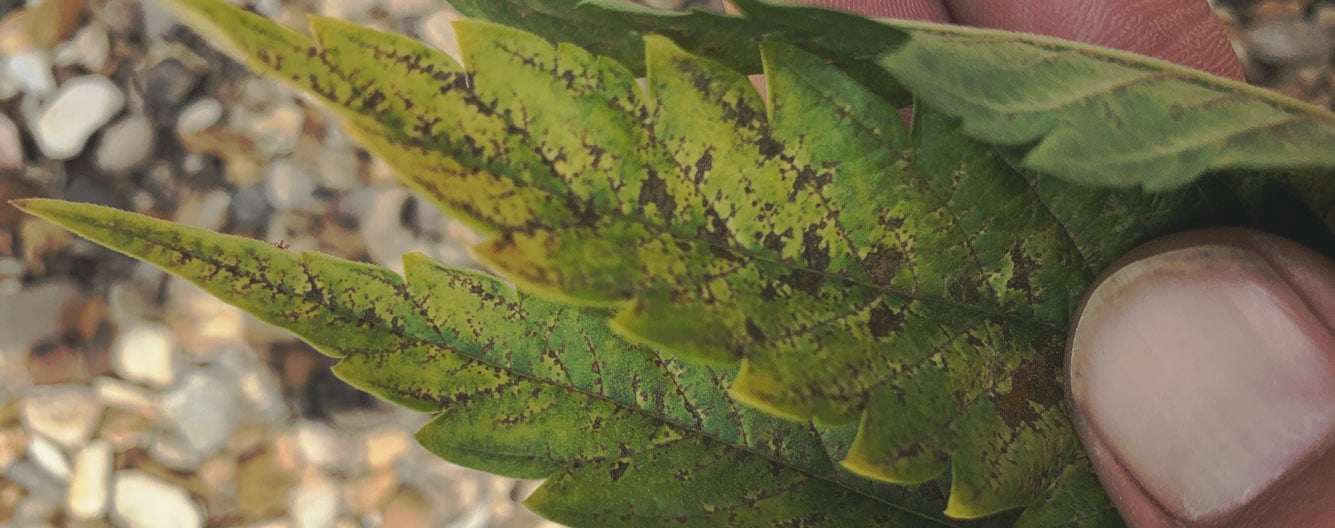
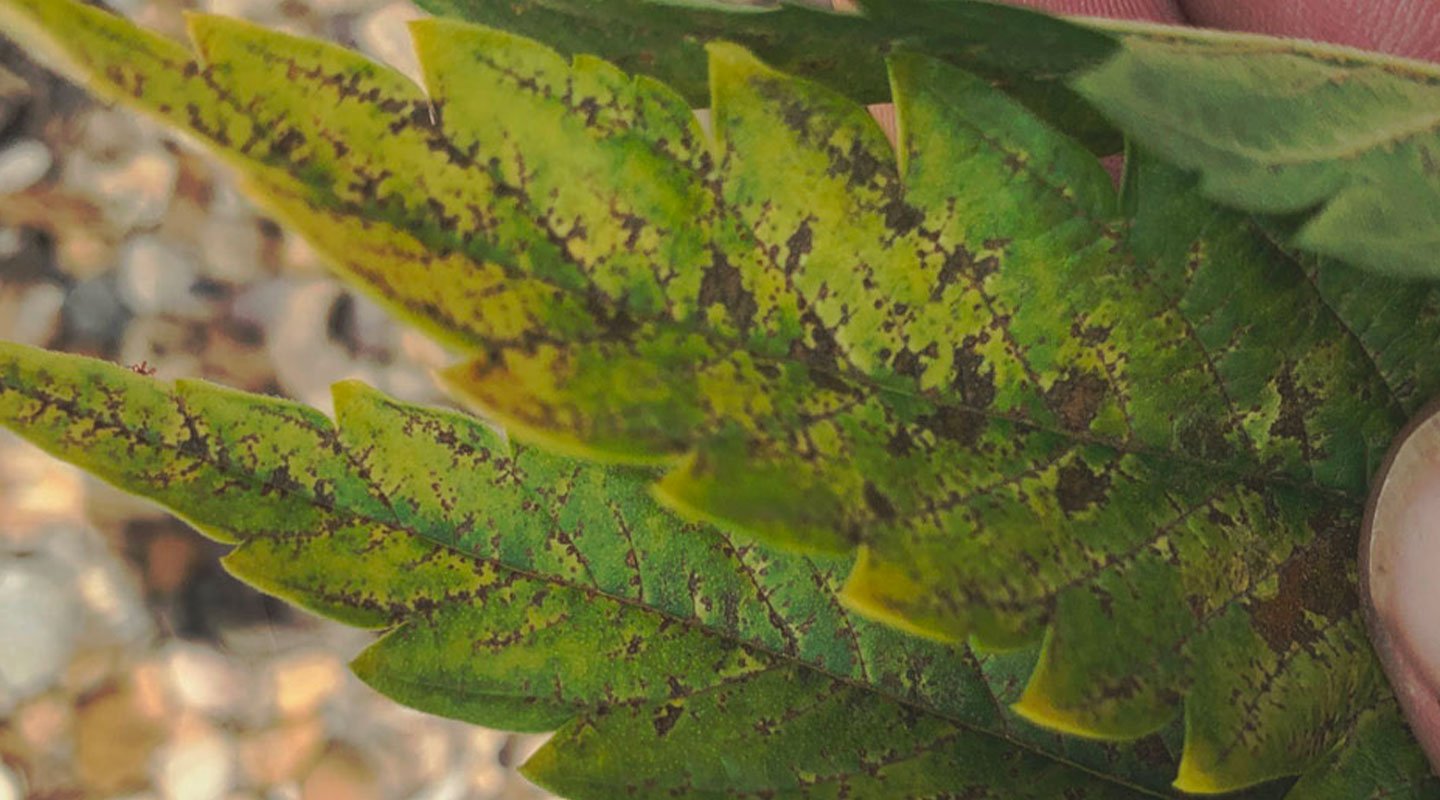
| How to prevent |
|
| How to fix |
|
| How to prevent |
|
| How to fix |
|
IRON
Iron plays an essential role in chlorophyll formation. The element also forms part of several enzymes and some important pigments. Overall, this immobile micronutrient helps plants carry out metabolic and energy-forming processes. If your plant experiences iron deficiency, you’ll notice young growth at the top of the plant becoming bright yellow.


| How to prevent |
|
| How to fix |
|
| How to prevent |
|
| How to fix |
|
MANGANESE
Manganese doesn’t receive too much attention in the world of cannabis growing. However, this immobile micronutrient plays a fundamental role in cannabis physiology. It aids photosynthesis, respiration, nitrogen assimilation, and root cell elongation, and protects roots from bad microbes.
Manganese deficiency will show up as light green discolouration near the base of new growth. This eventually spans out to the tips, and brown spots begin to emerge.
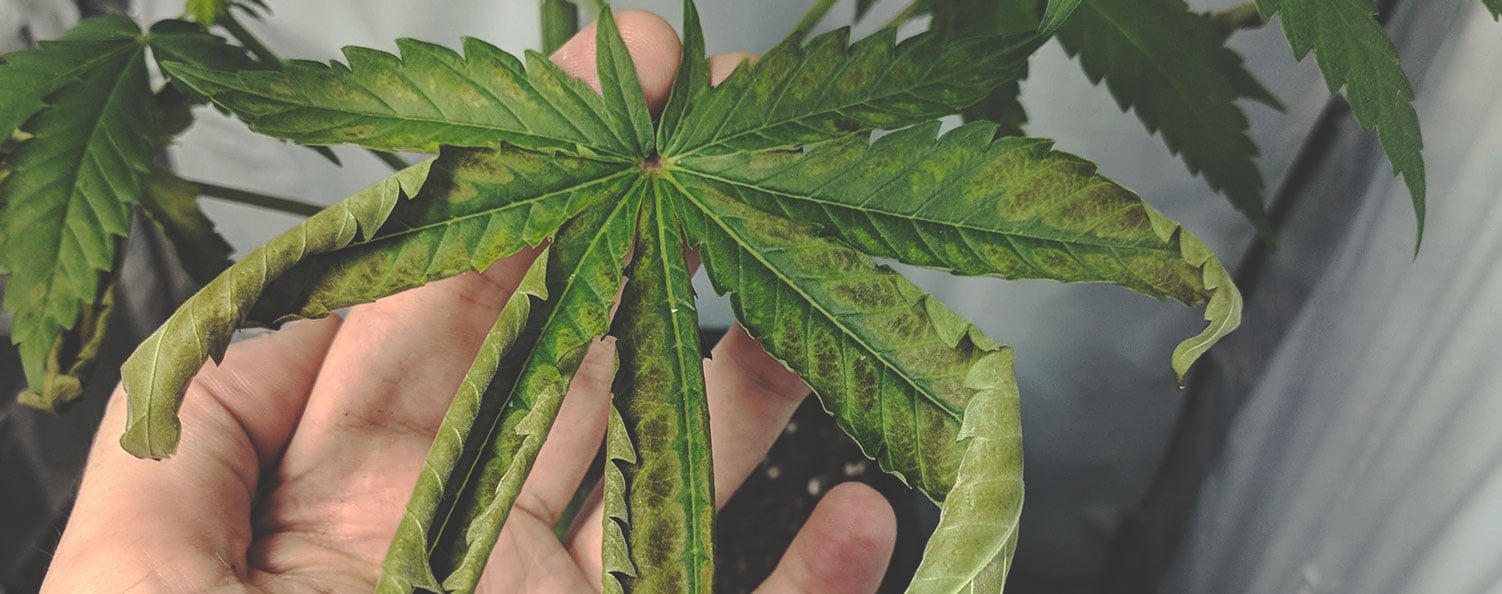
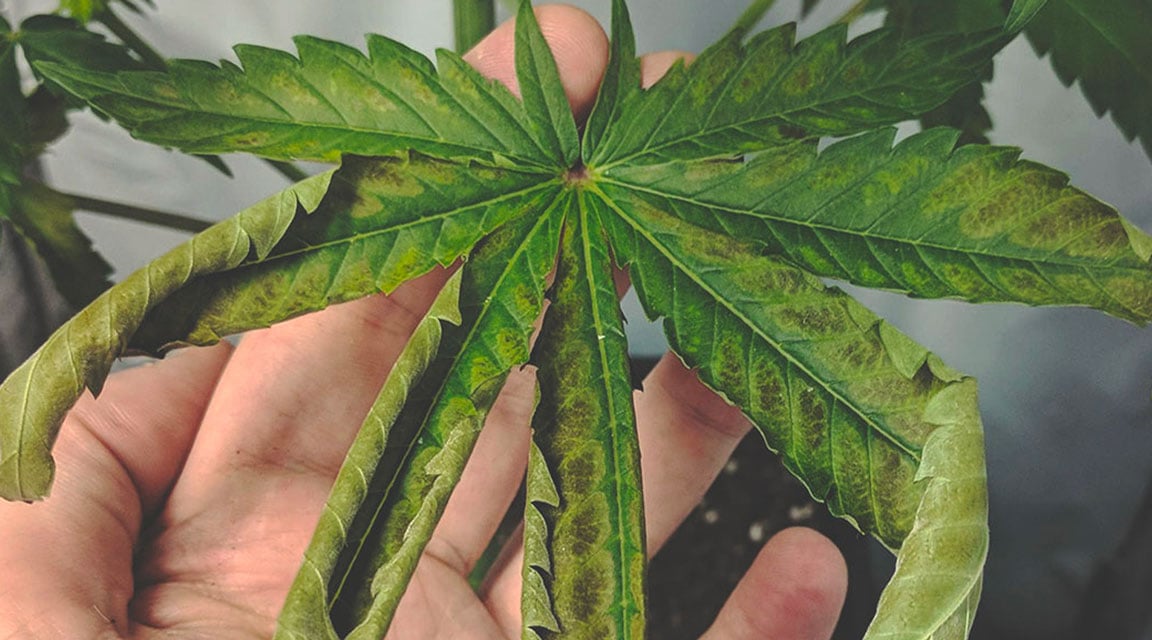
| How to prevent |
|
| How to fix |
|
| How to prevent |
|
| How to fix |
|
BORON
Boron works alongside calcium to give integrity to plant cell walls and help with cell division. Breeders also have a soft spot for this immobile nutrient as it helps with the pollination process. A lack of boron will lead to deficiency symptoms such as a lack of turgor, reduced fertility, poor vegetative growth, and terminated meristems. New growth will become twisted, sugar leaves will wilt, and leaves will show a yellowish-brown discolouration.
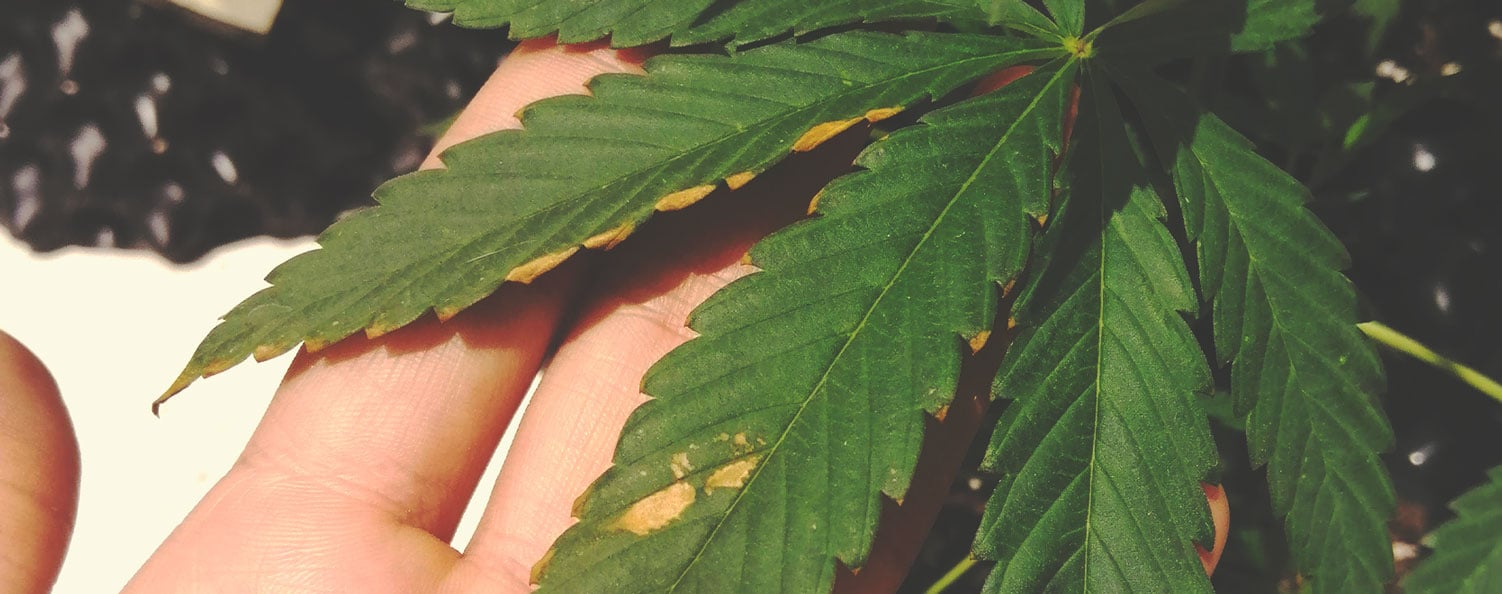
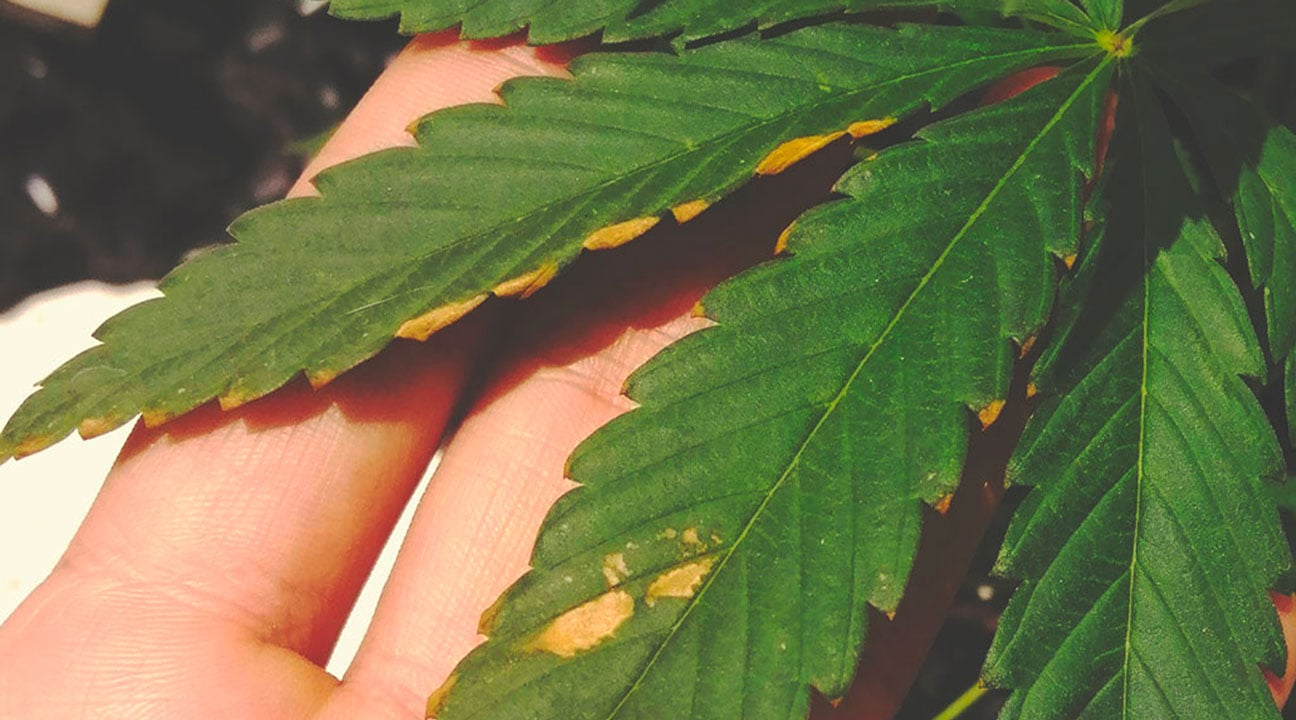
| How to prevent |
|
| How to fix |
|
| How to prevent |
|
| How to fix |
|
MOLYBDENUM
Another lesser-known nutrient, molybdenum helps to form two essential enzymes that convert nitrate into nitrite and then into ammonia. Plants use the latter to make amino acids, which eventually become proteins. If your plants become deficient in molybdenum, they’ll start to display red and pink discolouration at the edges of new growth. Leaves will also start to become yellow and spotted. Thankfully, molybdenum deficiency is quite rare.
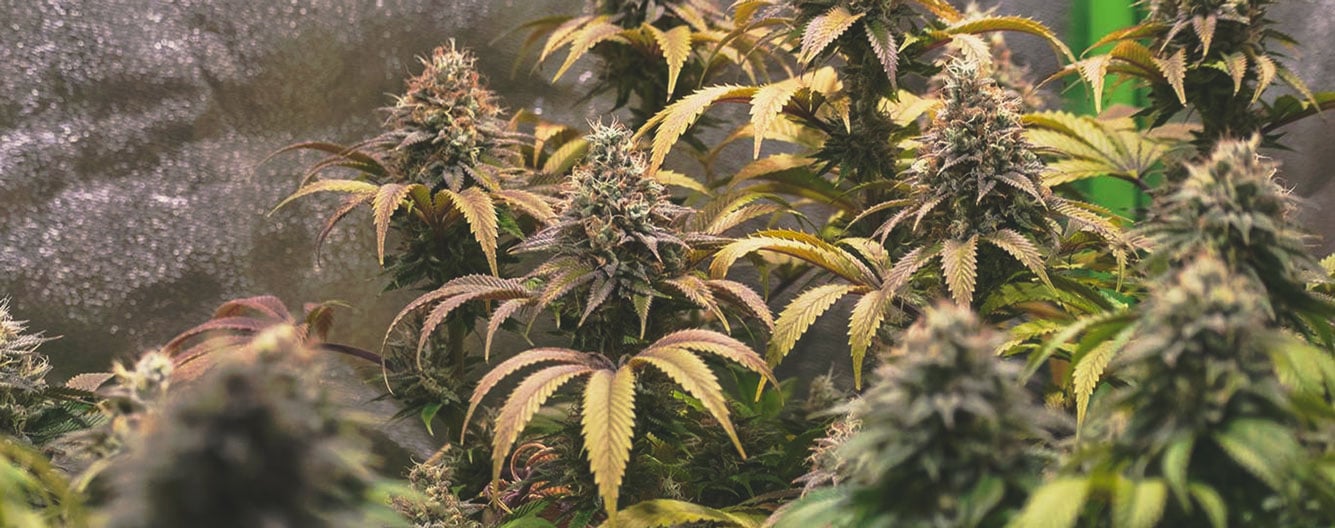
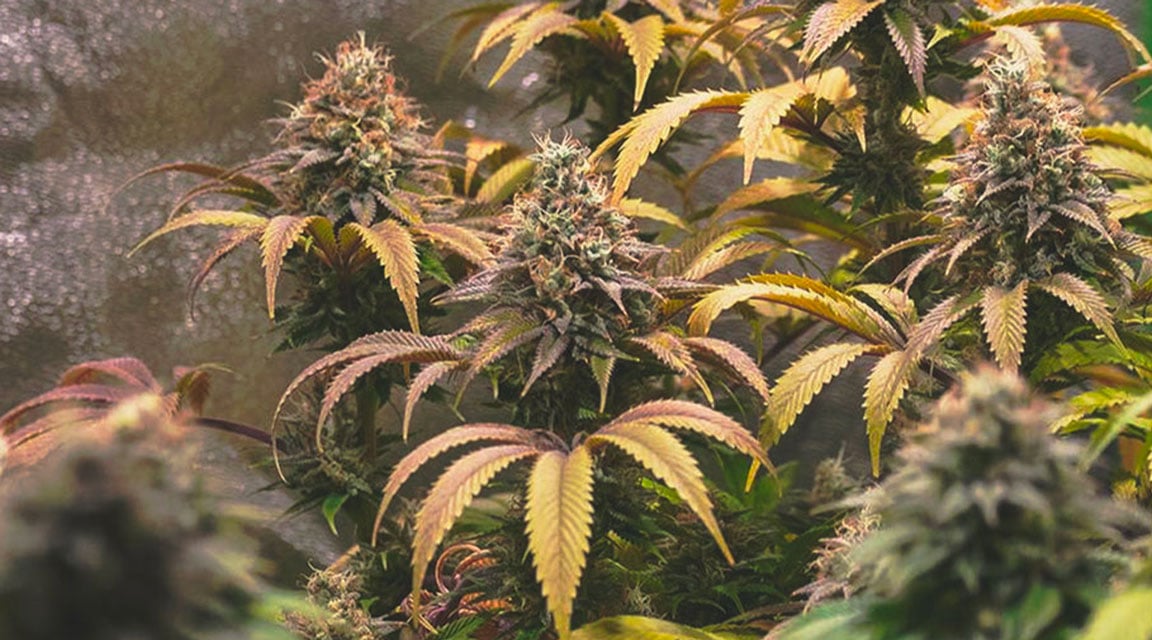
| How to prevent |
|
| How to fix |
|
| How to prevent |
|
| How to fix |
|
ZINC
Plants don’t need much zinc at all, but illness will strike if they miss out. Zinc forms parts of proteins, membranes, and growth hormones. The immobile micronutrient also regulates enzyme function and stabilises DNA and RNA. What happens when zinc goes missing? Deficiency symptoms manifest in slowed new growth; the distance between nodes lessens, and leaves will look wrinkly and yellow. Eventually, new leaves will display yellowing and rust-coloured tips.
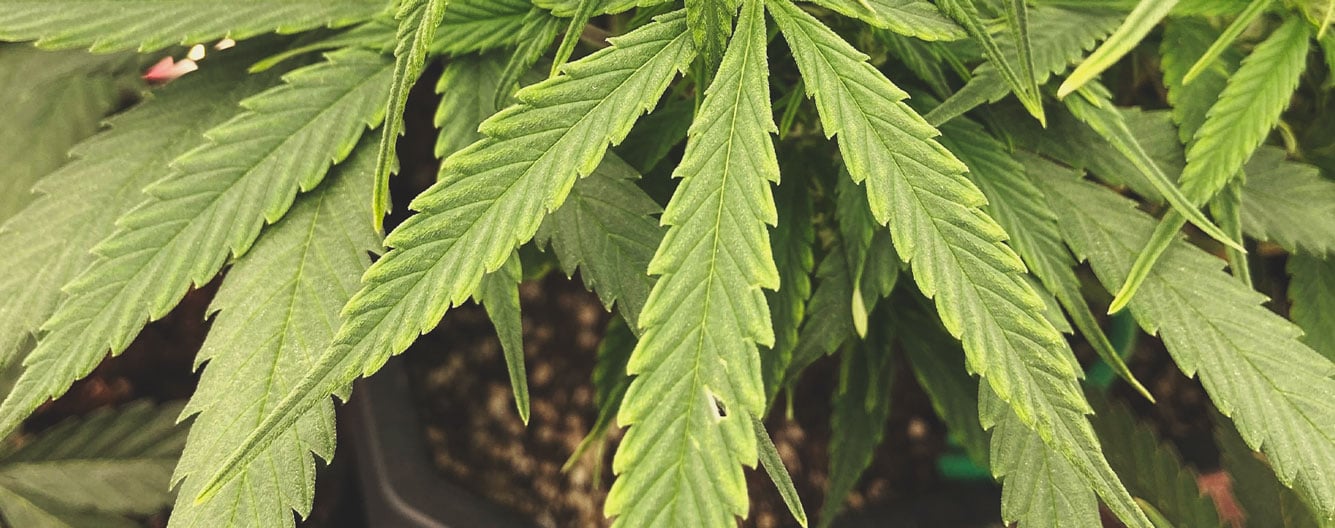
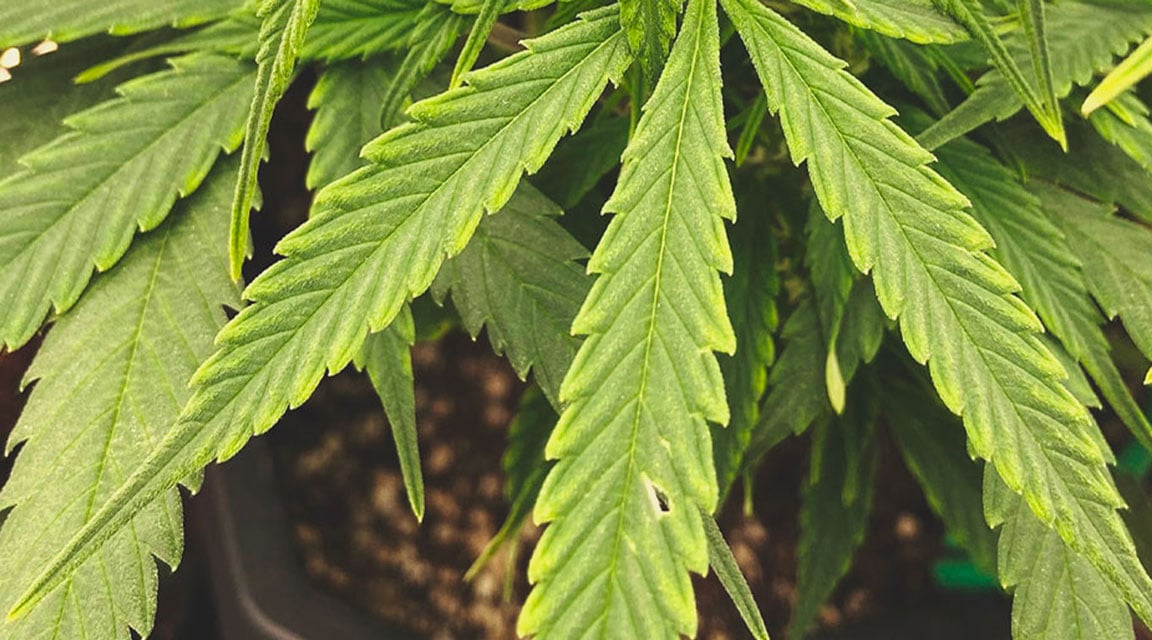
| How to prevent |
|
| How to fix |
|
| How to prevent |
|
| How to fix |
|
 Grow Guide Topic Finder
Grow Guide Topic Finder
- Growing cannabis step by step
- Cannabis growing basics
- Choosing your seeds
- How to germinate seeds
- The cannabis vegetative stage
- The cannabis flowering stage
- Harvesting cannabis
- Trimming, drying, and curing
- Choosing pots and soil
-
Growing indoors
- A Complete Overview Of Growing Cannabis Indoors
- Cannabis Cultivation Tips: How To Set Up Indoor Grow Lights
- How Many Cannabis Plants Can You Grow Per Square Metre?
- Indoor Cannabis Growing: Relative Humidity and Temperatures
- Hydroponics Cannabis Growing Guide (with diagrams)
- Cannabis Micro Growing: Growing Great Weed in Tiny Spaces
- Growing outdoors
- How to grow autoflowering cannabis
- Cannabis nutrients and pH
- Cannabis troubleshooting: Nutrients
-
Cannabis troubleshooting: Growing
- Cannabis Seed Germination — Troubleshooting Guide
- How to Deal With Pythium (Root Rot) in Cannabis Plants
- Slow Cannabis Plant Growth And What You Can Do About It
- How to Deal With Leggy Cannabis Seedlings
- Watering Your Cannabis: How to Fix Overwatering and Underwatering
- Understanding Male, Female, And Hermaphrodite Cannabis
- Identifying and Treating Common Cannabis Ailments
- How To Revive a Sick Cannabis Plant
- How to Avoid Mouldy Weed During Drying and Curing
- How to Prevent and Treat Dry and Crispy Cannabis Leaves
- What Cannabis Leaves Can Tell You
- Causes and Solutions for Yellow Cannabis Leaves
-
Cannabis Strains Grow Report
- HulkBerry Automatic Grow Report
- Blue Cheese Auto Grow Report
- Purple Punch Automatic Strain Grow Report
- Triple G Automatic Grow Report
- Do-Si-Dos Automatic Grow Report
- Green Gelato Automatic Grow Report
- Haze Berry Automatic Grow Report
- Purple Queen Automatic Grow Report
- Cookies Gelato Automatic Grow Report
- Sherbet Queen Automatic Grow Report
- Sweet Skunk Automatic Grow Report
- Medusa F1 Grow Report
- Cannabis plant training
-
Weed growing tips
- The Cannabis Plant Anatomy
- How to preserve seeds
- How Much Sunlight Do Outdoor Cannabis Plants Need To Grow?
- How to Control and Prevent Stretching in Cannabis Plants
- My Cannabis Plants Are Growing Too Tall: What Should I Do?
- Should You Worry About Purple Or Red Cannabis Stems?
- What To Do When Your Indoor Cannabis Won’t Flower
- How To Protect Your Cannabis Plants From Heat Stress
- How To Tell If Your Female Cannabis Plant Has Been Pollinated
- Growing Medical Marijuana
- Bud Washing: How to Clean Your Weed
- Understanding Cannabis Yield per Plant


























